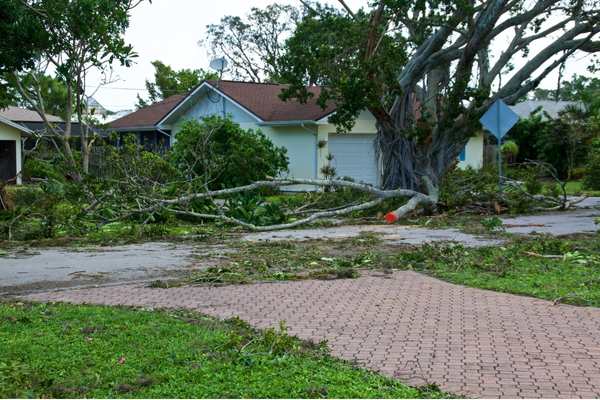There’s nothing worse than a pesky neighbor. Maybe they let their lawn grow way too long or refuse to trim the tree encroaching in your space, so you might wonder, how do I handle a property line dispute?
Those invisible lines that define where your property starts and stops tend to produce problems. Whether it’s your property line being challenged or your neighbors, read on to learn about how to handle a property line dispute.
What Are Property Line Disputes?
A property line dispute is a disagreement between two people about where their property lines start and end. Property line disputes become problematic if, for example, your neighbor builds a fence that you think encroaches on your property.
Because property lines are invisible, most people may not know where their property officially falls. It’s important to know where your property line falls to avoid your property line being challenged and future buying and selling issues.
How Do I Know Where my Property Line Falls?
It’s important to know where your property line falls, but landowners often don’t know. Luckily, here are three ways to determine where your property line falls.
Check Your Deed
When you bought your property, you should have received a deed document. This document contains your property’s legal description, including its dimensions and boundary lines. However, if you can’t find your deed, landowners can find their property lines in other ways.
Check the County Tax Office
Another way to find your property line is to visit the county tax office. The tax assessor will have a map on file that shows all of the property lines in the county. This is an excellent resource if you’re having trouble finding your deed or if you suspect that your property line may have changed since you bought your property.
Hire a Land Surveyor
You can hire a land surveyor if you want to be absolutely sure where your property line is. A professional land surveyor will use special equipment to measure your property and determine where the boundary lines are. This is the most accurate way to find your property line, but it’s also the most expensive.
Once you know where your property line falls, you can take steps to protect your investment.
Different Types of Property Line Disputes
There are two types of property line disputes: encroaching and trespassing.
Encroaching occurs when your neighbor builds something on your property, such as a fence, shed, or deck. The neighbor is encroaching even if the structure is only partially on your land. You can often resolve this dispute by moving the structure back onto your neighbor’s property.
Trespassing occurs when your neighbor enters your property without permission. Trespassing can be a big problem if you suspect your neighbor is up to no good or if they’re constantly entering your property without asking. You may need to take legal action to stop the trespassing and protect your property rights.
How to Handle a Property Line Dispute
Suppose you’re concerned about someone building on your property or trespassing on your land without permission. In that case, we will discuss a few ways to handle a property line dispute.
Communicate with your neighbor.
The first step is to try to communicate with your neighbor. Explain your concerns and see if you can agree. It’s always best to handle things amicably with your neighbor before taking legal action.
Consider using signs or other markers.
If you have a property line dispute with a neighbor, one way to handle it is to put up signs or fences. Signs, fences, or other barriers can clarify where your property ends and theirs begins. You can also use landscaping features like shrubs or trees to mark the boundary between properties.
Conduct a title search.
Another way to handle a property line dispute is to conduct a title search. This will show you who owns the disputed piece of property based on the legal lines registered with the county.
Hire a land surveyor.
If you’re unsure where your property ends and theirs begins, you can hire a land surveyor. A surveyor will use special equipment to measure the precise boundaries of your property.
Hire an attorney.
Sometimes, you may need to hire a real estate lawyer in Texas to help you handle a property line dispute. An attorney can help you understand your legal rights and options, and they can represent you in court if necessary.
Why Hire a Real Estate Lawyer in Texas to Handle a Property Line Dispute
Sometimes, open communication between parties cannot resolve property or boundary line disputes. In other cases, your property line is being challenged and you’re not sure where to begin. If this happens, a real estate lawyer in Texas can take the burden off you to explore these options on your behalf.
Dooley Noted will serve as your advocate as you handle property line disputes. It is essential to have an attorney on your side who will fight for you and your investment. Book a free consultation with an attorney today.




